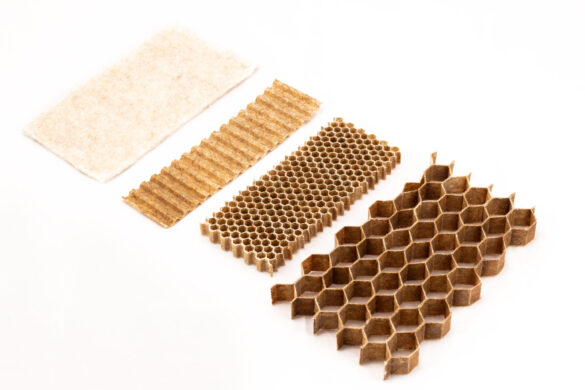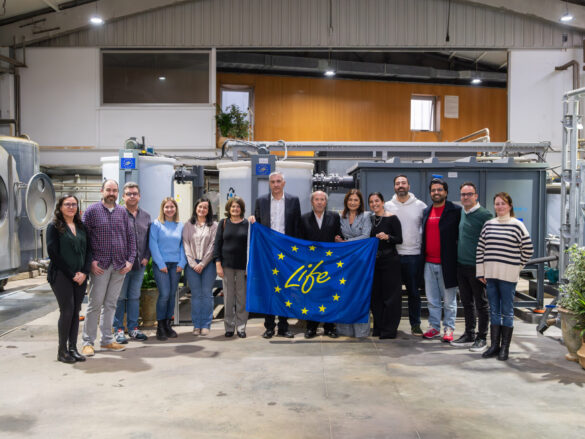
![]()
![]()
Circular economy and sustainability / High value-added solutions for strategic markets
R&D INTO SUSTAINABLE TEXTILE DYEING AND FINISHING
TINABLE
Motivation
The study, use and optimisation of eco-sustainable technologies for the textile industry in dyeing and finishing will help reduce consumption of water, energy and chemicals, as well as waste, (microplastics, emerging pollutants, wastewater, etc.).
In addition, the substitution or elimination of synthetic products such as dyes and auxiliaries, replacing them where possible with products of natural origin for fabric dyeing and functionalisation is another important milestone to achieving sustainable products that fulfil the requirements and technical specifications of the end product.


Objectives
- Validate and implement technologies that aid the development of eco-finishes in the textile industry, reducing the consumption of water, energy and chemical products, as well as reducing waste (microplastics, emerging pollutants, wastewater, etc.).
- To study the technical and economic feasibility of the use of dyes and auxiliary products of natural origin (vegetable, microorganisms, etc.), as well as the functionalisation of textiles, avoiding chemical raw materials of non-renewable origin.
- Optimising sustainable finishing processes by ensuring compliance with the requirements and technical specifications associated with the use of the final article (light fastness, full colour range).
Obtained results

-
Line 1. Dyeing with micro-organisms:
Incubation in the Bioreactor equipment of two bacteria to produce a blue pigment, and dyeing tests with said pigment in liquid medium on non-mordant silk fabrics. The liquid pigment was also dried to produce the pigment in powder form.
-
Line 2. R&D on the improvement of the light fastness of vegetable dyes.
Analysis and application of new processes and natural auxiliaries to improve the light-fastness of vegetable dyes. Various etching tests and the application of Ultra Violet filters on cellulosic fabrics were performed and the results of said tests produced fastness values ranging from four to six, both at 100 hours and at 240 hours of exposure, depending on the type of dye.
-
Line 3. Reuse of treated water in textile industry processes
A feasibility study into the use of reclaimed water from textile treatment plants to check whether the water can be reused in fabric dyeing. A trial dye process was performed with a single colour and a trichromy, in waste water with varying concentrations of untreated water.

TINCTURES WITH VEGETABLE DYES

TINCTURES WITH MICROORGANISMS
Grant number: IMAMCA/2022/6
Programme: Plan of non-economic activities 2022
Period of execution: January 2022 – December 2022
Status: Finished
More information: PLAN OF ACTION
Entity: IVACE

This project is funded by the Conselleria d’Economia Sostenible, Sectors Productius, Comerç i Treball de la Generalitat Valenciana, through IVACE.

CONTACT US
Do you want to contact us? Click on the button and write to us.
R&D AREAS
NEWS
AITEX will be present at the new edition of In-Cosmetics 2025, which will be held from 8 to 10 April in Amsterdam. Find out about our laboratory testing and R&D services. Stand 5D12.
The technology centre AITEX and the investment vehicle REDIT Ventures create, in co-investment, the new company Honeytex, focused on the manufacture of advanced materials based on honeycomb cores.
The European LIFE ANHIDRA project will reduce the environmental footprint of one of the industries with the highest global water consumption.










